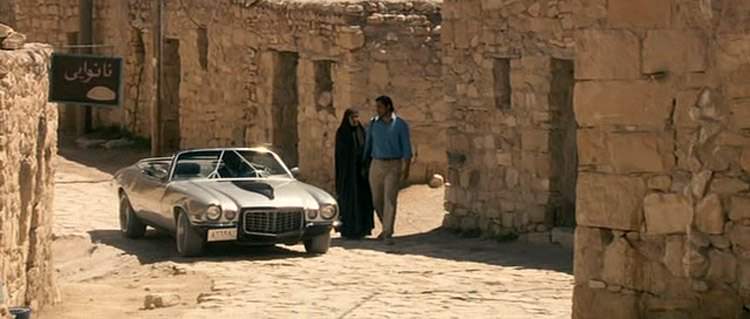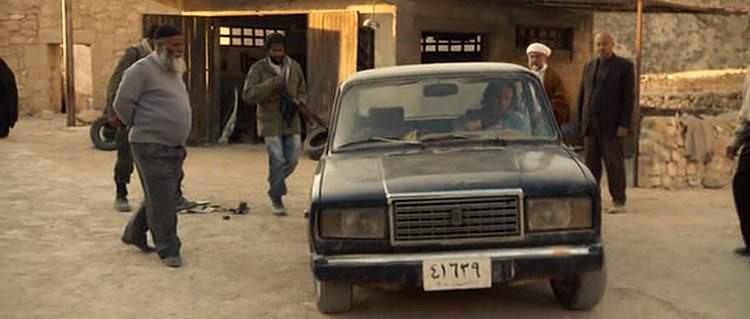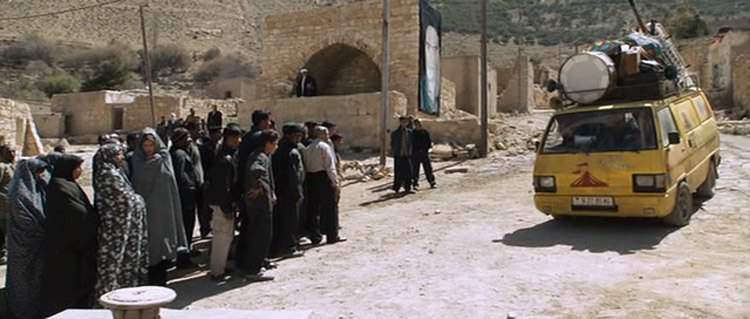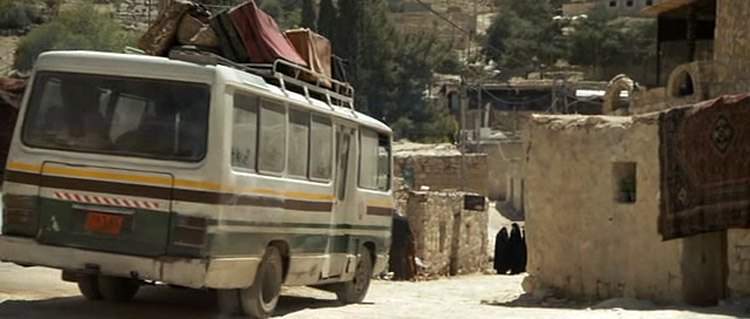The Stoning of Soraya M. 2009
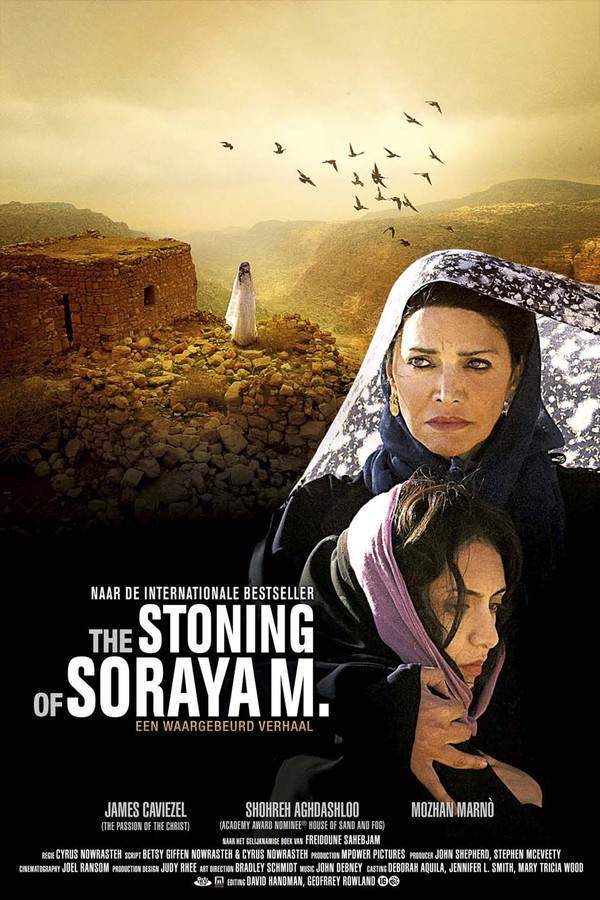
In a small Iranian town, Soraya M. finds her life tragically disrupted by a false accusation of adultery. Facing severe consequences under religious law, she fights for her life and struggles to reveal the truth behind the unjust claims against her. Academy Award nominee Shohreh Aghdashloo delivers a powerful performance in this gripping drama, alongside Jim Caviezel, based on a true story that evokes both outrage and deep compassion.
Does The Stoning of Soraya M. have end credit scenes?
No!
The Stoning of Soraya M. does not have end credit scenes. You can leave when the credits roll.
Meet the Full Cast and Actors of The Stoning of Soraya M.
Explore the complete cast of The Stoning of Soraya M., including both lead and supporting actors. Learn who plays each character, discover their past roles and achievements, and find out what makes this ensemble cast stand out in the world of film and television.
External Links and Streaming Options
Discover where to watch The Stoning of Soraya M. online, including streaming platforms, rental options, and official sources. Compare reviews, ratings, and in-depth movie information across sites like IMDb, TMDb, Wikipedia or Rotten Tomatoes.
Ratings and Reviews for The Stoning of Soraya M.
See how The Stoning of Soraya M. is rated across major platforms like IMDb, Metacritic, and TMDb. Compare audience scores and critic reviews to understand where The Stoning of Soraya M. stands among top-rated movies in its genre.

50
Metascore
7.4
User Score


58%
TOMATOMETER

87%
User Score

76
%
User Score
Take the Ultimate The Stoning of Soraya M. Movie Quiz
Challenge your knowledge of The Stoning of Soraya M. with this fun and interactive movie quiz. Test yourself on key plot points, iconic characters, hidden details, and memorable moments to see how well you really know the film.
The Stoning of Soraya M. Quiz: Test your knowledge about the tragic story and characters of 'The Stoning of Soraya M.'
What is the main theme of 'The Stoning of Soraya M.'?
Romantic love
Oppression and injustice
Adventure and discovery
Family loyalty
Show hint
Awards & Nominations for The Stoning of Soraya M.
Discover all the awards and nominations received by The Stoning of Soraya M., from Oscars to film festival honors. Learn how The Stoning of Soraya M. and its cast and crew have been recognized by critics and the industry alike.
2008 Toronto International Film Festival Awards 2008
Full Plot Summary and Ending Explained for The Stoning of Soraya M.
Read the complete plot summary of The Stoning of Soraya M., including all major events, twists, and the full ending explained in detail. Explore key characters, themes, hidden meanings, and everything you need to understand the story from beginning to end.
In the bleak landscape of the Iranian village of Kuhpayeh, a journalist named Freidoune finds himself stranded due to mechanical issues. His unexpected meeting with Zahra thrusts him into a heart-wrenching odyssey as she shares the devastating story of her niece Soraya, who suffered a brutal stoning just a day before. As Zahra recounts her harrowing tale, the journalist diligently documents their conversation, becoming increasingly entwined in the oppressive web of lies and corruption surrounding them.
At the core of this tragic narrative is Ali, Soraya’s cruel husband, who desires to be rid of her in order to marry a 14-year-old girl. His devious scheme involves manipulating the influential mullah in the village by revealing secrets from Ali’s dark past as a former convict. This manipulative play allows Ali to coerce the mullah into pressuring Soraya for a divorce, ostensibly in exchange for saving the life of the young girl’s father, a doctor unjustly sentenced to death.
Ali’s sinister ultimate intention is to eliminate Soraya and secure control over her two sons. When a village woman passes away, Ali seizes this cruel opportunity to engineer a series of events that would lead to Soraya’s doom. He persuades Zahra to convince Soraya to assist the grieving widower, utilizing this scenario to spread malicious rumors of Soraya’s imagined infidelity. This underhanded strategy aims to discredit her completely before orchestrating her stoning, freeing him from any obligation of child support.
In collusion with the mullah and the mayor, Ali aims to obliterate Soraya’s reputation by manipulating the widower into supporting their contrived narrative of adultery. Freidoune, caught in the turmoil, watches in despair as Ali publicly degrades Soraya, brutally assaulting her and making false accusations. Zahra, desperate to save her niece’s life, implores the mayor to reconsider, even offering to take her niece’s place. Yet, her pleas fall on deaf ears, as Soraya is inexorably condemned to a horrific fate.
As Freidoune endeavors to escape the village and unveil Soraya’s tragic plight to the world, he finds himself deeper than ever in a maze of corruption and deceit. This oppressive environment not only threatens his safety but also compels him to fight for the truth and expose the grim realities lurking beneath the surface of this isolated Iranian village.
As the dreadful ritual of stoning begins, Soraya’s father is given the first chance to deliver judgment, but he falters, a grave foreshadowing of the tragedy to unfold. A desperate woman in the crowd implores the mayor to acknowledge the warning signs – stones that miss their target – hinting at Soraya’s innocence. However, the predominantly male crowd remains unmoved by her cries. It is Ali who takes justice into his own hands, hurling the stones with the grim resolution of someone who is ultimately filled with regret, especially as his own sons are forced to join in this horrific act. The widower, faced with the stones, cannot bring himself to participate and walks away in tears, a stark contradiction to the surrounding apathy. When the crowd finally joins in the stoning, Soraya’s life ebbs away amid the senseless brutality.
In a moment of levity amidst the surrounding horror, the widower informs the journalist that his car has been repaired, a seemingly minor detail overshadowed by the grave injustices inflicted upon Soraya. In a twist of fate, the mullah and the widower come face-to-face with Ali, who announces he is canceling his marriage to the young girl, suggesting he couldn’t bear to save her father from execution. Indignant over Ali’s betrayal and the mullah’s role in this misdeed, the widower confesses to earlier deceit. As Freidoune prepares for his departure, the mullah orders a member of the Revolutionary Guard to stop him at gunpoint, seizing his tape recorder and obliterating its contents. Standing resilient, Zahra reemerges, wielding the true recording that will shine a light on the horrific injustice they have endured, an unwavering symbol of hope confronting the relentless oppression.
Uncover the Details: Timeline, Characters, Themes, and Beyond!

Coming soon on iOS and Android
The Plot Explained Mobile App
From blockbusters to hidden gems — dive into movie stories anytime, anywhere. Save your favorites, discover plots faster, and never miss a twist again.
Sign up to be the first to know when we launch. Your email stays private — always.
Watch Trailers, Clips & Behind-the-Scenes for The Stoning of Soraya M.
Watch official trailers, exclusive clips, cast interviews, and behind-the-scenes footage from The Stoning of Soraya M.. Dive deeper into the making of the film, its standout moments, and key production insights.
Cars Featured in The Stoning of Soraya M.
Explore all cars featured in The Stoning of Soraya M., including their makes, models, scenes they appear in, and their significance to the plot. A must-read for car enthusiasts and movie buffs alike.

Unlock the World of Movies with Our Comprehensive Wiki
Dive into our Movie Wiki for in-depth film encyclopedia entries, including cast biographies, production trivia, plot synopses, behind-the-scenes facts, and thematic analyses. Whether you’re researching iconic directors, exploring genre histories, or discovering hidden easter eggs, our expertly curated movie database has everything you need to fuel your cinematic passion.

Quick Links: Summary, Cast, Ratings, More

What's After the Movie?
Not sure whether to stay after the credits? Find out!
Explore Our Movie Platform
New Movie Releases (2026)
Famous Movie Actors
Top Film Production Studios
Movie Plot Summaries & Endings
Major Movie Awards & Winners
Best Concert Films & Music Documentaries
Movie Collections and Curated Lists
© 2026 What's After the Movie. All rights reserved.















